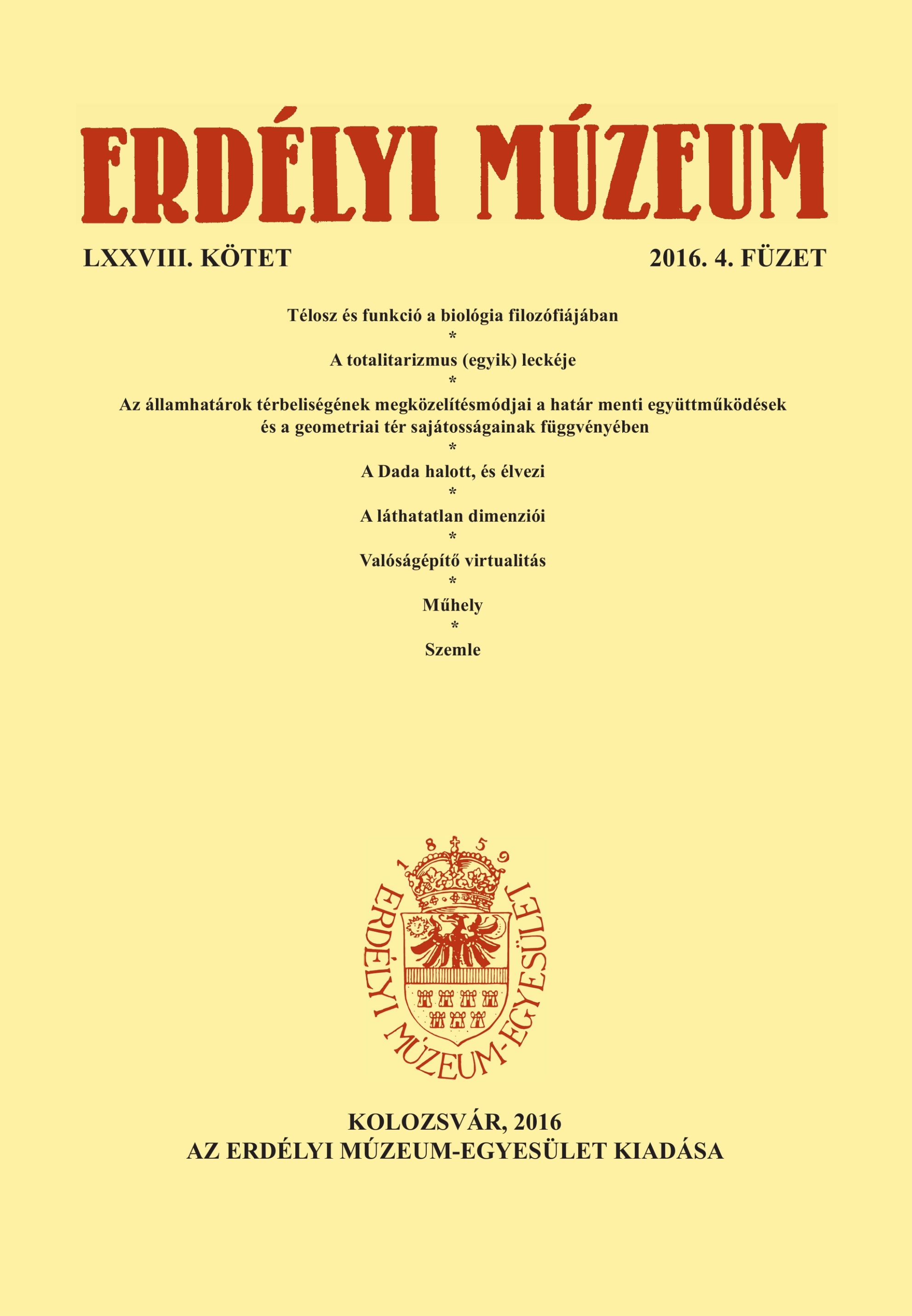A Dada halott, és élvezi
Dada is Dead and Loving It
Author(s): Gizella HorváthSubject(s): Philosophy
Published by: Erdélyi Múzeum-Egyesület
Keywords: Dada; avant-garde; disappointment with reason; nonspecific art; Tristan Tzara
Summary/Abstract: The historical period of the avant-garde art movements coincided with two phenomena which can be interpreted as the failure of the rationalism characteristic for the modern, capitalist system. One of these is Taylorism, which dehumanized and robotized the person involved in the work process, and the other is the First World War. Several movements of the avant-garde related critically to reason and conscience (expressionism, surrealism), but the most radical was Dada. The manifestos and Dadaist activities reveal that the Dada wants to do away not only with the heritage of the past, but also with the linguistic and logical structures which form the texture of society. Bruitist poems, meaningless words and sentences, simultaneous poems, and the various uses of sound are all aimed at tearing apart language itself. The refusal of logic is most evident in the manifesto of Tristan Tzara, in which the series of mutually contradictory affirmations is concluded with an exceptionally clear statement: “I hate common sense”. Logic, argumentation, and dialectics are all dismissed in the name of freedom and life, which are characterized by Tzara in the following way: “the interweaving of contraries and all contradictions, freaks and irrelevancies: LIFE”. In my paper, I supplement the thesis of Peter Burger on the failure of the avant-garde (which is explained by him through its artistic success) by calling attention to the failure of its fight against reason, which is most evident in the search for meaning as an essential part of artistic reception. Thus, Dada is only interesting as long as the meaningless phenomenon is associated with some kind of meaning during the artistic reception.
Journal: Erdélyi Múzeum
- Issue Year: LXXVIII/2016
- Issue No: 4
- Page Range: 47-59
- Page Count: 13
- Language: Hungarian

